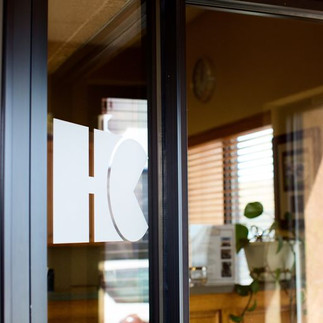The Importance of Community & Connection
- laurenmurphyferrar
- Sep 15, 2022
- 2 min read
You know that wonderful feeling after a pickleball game, a dinner party, a game night, a lunch with friends, a coffee date, a lecture at the library, or even just an afternoon stroll with a neighbor?
That’s community. That’s CONNECTION.
Something all human beings share is that we want to be:
Seen
Heard/Understood and
CONNECTED
Connection is community. They are one in the same.
Research shows that the greatest predictor of overall health and longevity is the presence of positive relationships and community!
So, what is community?
Roughly defined, a community is a group of people with something in common. The shared factor may be family, geography, faith, race, life stage or common experience – for example, serving our country. It could also be an overlapping interests, passions or professions.
True community enriches our lives when we share a sense of trust, when we care for one another, and, again, that magic word, when we feel connection.
The sense of belonging and bonding we feel when we spend quality time with others is an essential ingredient to a fulfilling life. Vulnerable conversations and simply time spent with others provide us with:
A support network
Opportunities for professional development
A sense of purpose
Stress relief
Inspiration
Communication
Decision making skills
Resilience
Greater overall health and longevity
In fact, the absence of social connections can have profound negative effects on general physical and psychological wellness. An early study on the cognitive and mental impact of the COVID-19 pandemic showed that loneliness was one of the factors with the greatest negative psychological impact on people’s health. The detrimental impacts of low social connection on health include:
Elevated risk factors for stress and inflammation, suicide and early death.
Chronic disease and health conditions such as heart disease, high blood pressure, immune disorders and cancer.
Compromised mental health and well-being, and the inability to cope with anxiety
So, how do we find and create community?
Communities exist in many forms, both formal and informal. Formal institutions such as faith-based organizations, schools, and governments might be some of the first types of community that come to mind. But informal groups, such as Bridge buddies, or book clubs, golfing groups, etc., often play an important role in our lives, too.
Find someone with whom you have something in common, a fellow veteran, perhaps, and strike up a conversation. That’s the first way to get started.
Then, reach out to others with that same commonality and extend the bonding invitation further. Look around for people like you and participate!
Just showing up can enrich and prolong your life, the lives of others, and build more resilient organizations and societies.
Community is what we’re creating at Veterans Victory.
For more information, check out this article from NAMI: The Importance of Community and Mental Health.



















Comments